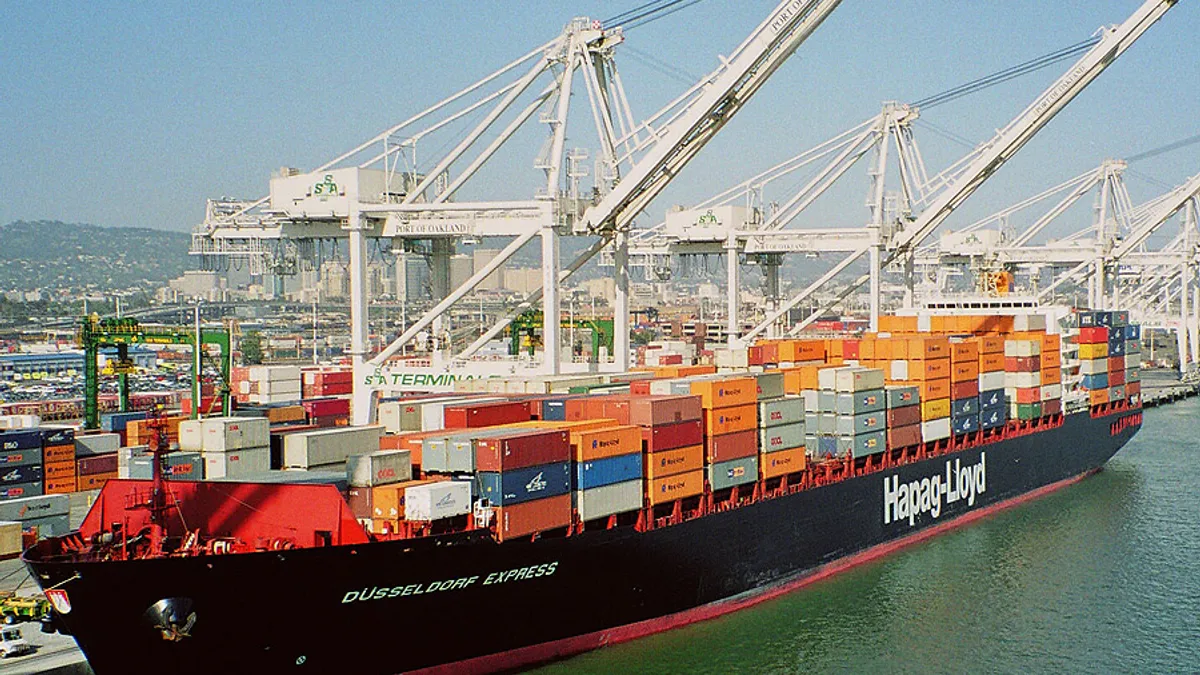Dive Brief:
- Hapag-Lloyd will charge a $60 fee for shipments from Singapore to India that are cancelled within 3 days of a vessel's arrival, according to a service fee alert.
- JOC.com reports Hapag-Lloyd is the second carrier to institute such a fee this month. On June 1, CMA CGM imposed a $150 per TEU cancellation fee on its Europe to Indian subcontinent, Gulf and Red Sea routes.
- At a recent JOC Events conference, the carrier's CEO reportedly said only 3 in 4 bookings follow through. Carriers, in turn, have to overbook capacity to ensure fully utilized ships. If all bookings show up, however, shippers' cargo is often rolled over to the next available vessel.
Dive Insight:
This is Hapag-Lloyd's second imposition of a no-show fee in Asia, where reports of particularly egregious over-bookings abound. In October, the line instituted a $40 cancellation fee for shippers in the ports of Hong Kong and Macau. Eight months later, the fee is being levied at an additional port.
As the shipping industry looks to correct its overcapacity problem, carriers are looking at structural inefficiencies in the booking process for help. In a chicken-and-the-egg problem, carriers complain about shippers making multiple bookings; while shippers say they do that to protect themselves against rollovers because the carrier overbooks. Of course, the shipping industry is not the only one with this problem; passenger airlines have recently come under scrutiny for similar reasons.
However, the problem has recently been aggravated by rising ship sizes. With more space available per shipment, large vessels are calling on ports less frequently. This, in turn, makes shippers who are rolled over wait longer for the next ship, and increases the incentive to book an additional slot. If only costs $60 to cancel — or $150 per TEU for CMA CGM customers — whereas a delay in service may cost a forwarder or shipper far more.
Whether it is a symbolic charge, or not, it seems such fees are becoming more commonplace. What starts in Asia may extend elsewhere, if results prove positive. However, shippers who have suffered financially from a roll-over are unlikely to be happy with the new practice.













